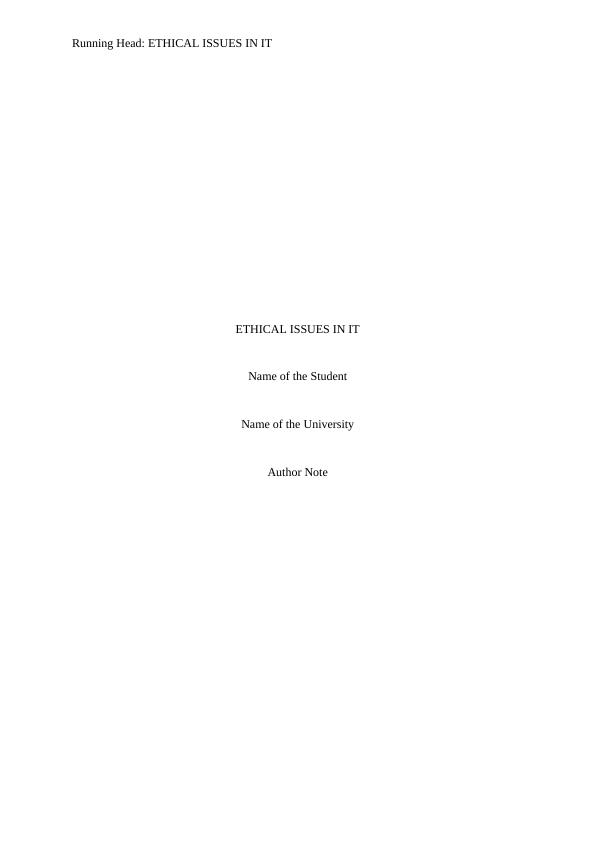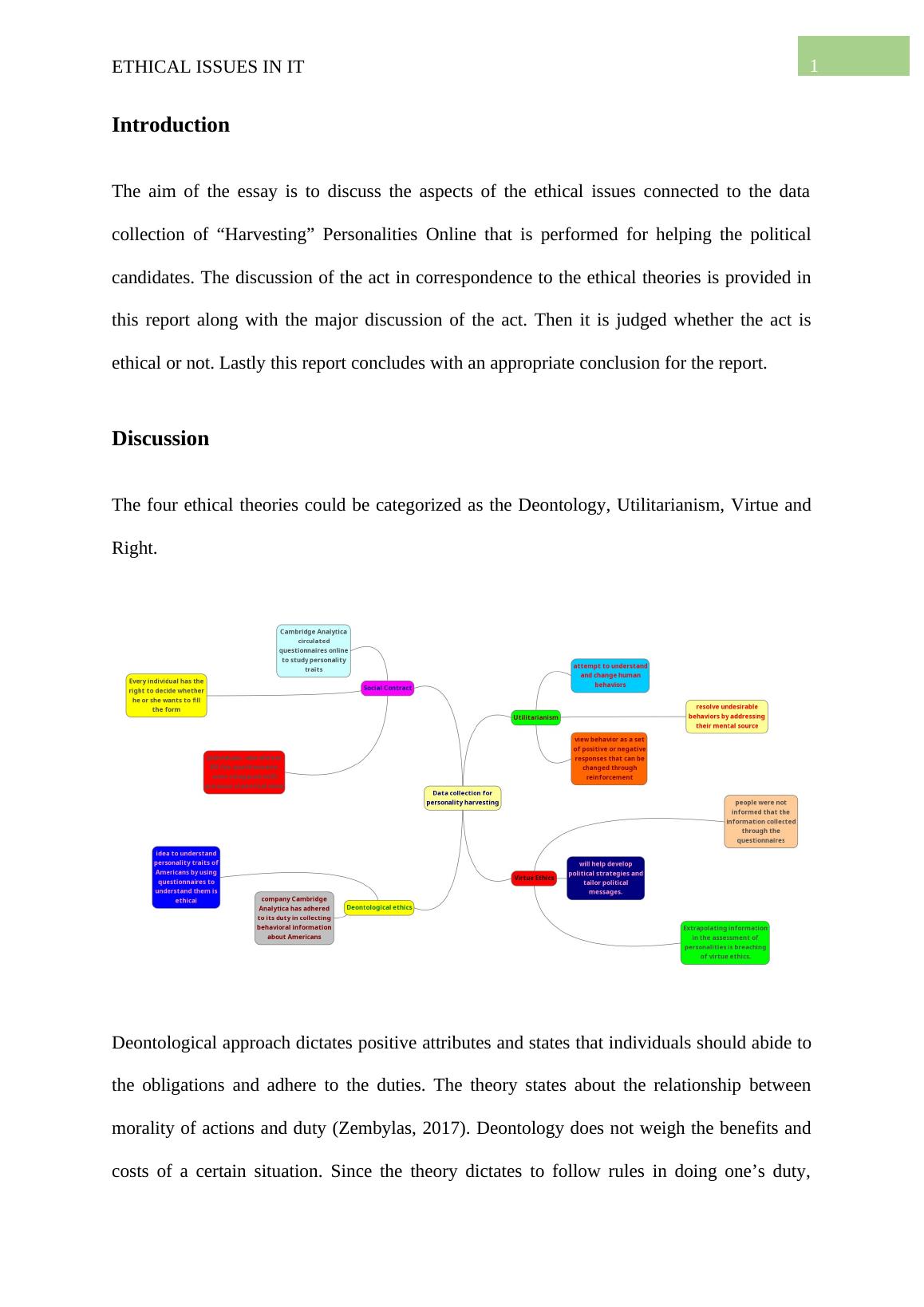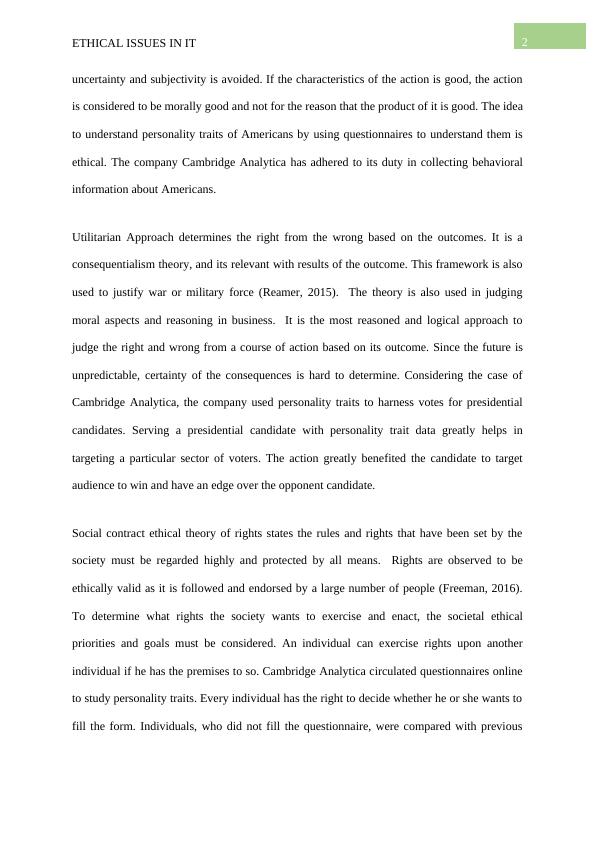Ethical Issues in IT
Added on 2023-02-01
6 Pages997 Words23 Views
End of preview
Want to access all the pages? Upload your documents or become a member.
Topics in IT Ethics: Data Collection: “Harvesting” Personalities Online
|7
|1423
|23
Cambridge Analytica circulated questionnaires online to study
|1
|146
|34
Deontology: A Superior Ethical Theory for Professional Practice
|8
|2068
|445
Business Law and Ethics Case Study: Facebook Data Breach and CEO Traits
|6
|1590
|460
Ethics and Professional Practices
|14
|2571
|121
Cambridge Analytica: Data Collection and Ethical Issues in Cyber Technology
|7
|1811
|122



